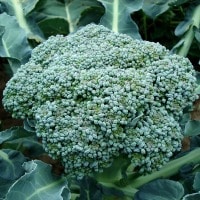Scientists at St. Louis’ Washington University School of Medicine have shown in a study published in the journal Cell Metabolism that giving healthy mice a natural compound called NMN (nicotinamide mononucleotide) compensated for the loss of efficiency in the energy supply chain, which is a key driver in the aging process. A great deal of human health depends on how well the body is able to manufacture and use energy. The ability of cells to produce energy gradually declines with age. That loss of energy production leads to typical signs of aging usually including loss of insulin sensitivity, gradual weight gain, and a decline in physical activity
As it ages, the body loses the ability to make NAD (nicotinamide adenine dinucleotide), which is a key element for energy production. Past work done by Shin-ichiro Imai, MD, PhD, a professor of medicine and developmental biology, together with co-senior author Jun Yoshino, MD, PhD, assistant medicine professor, showed that the levels of NAD decrease in many tissues as mice age. Past research also showed that NAD is not effective when given directly to mice, so the researchers searched for an indirect method to boost the levels. In order to do so, they just had to look one step earlier in the NAD supply chain to this NMN compound.
Imai stated that giving NMN has produced a way to slow the decline seen in aging mice and that older mice were shown to have the energy and metabolism levels of younger mice. Since human cells depend on the same process of energy production, there is hope that this will be translated into a method that can aid people in remaining healthier as they age. Imai has been working since earlier this year with other researchers at Keio University School of Medicine in Tokyo as they conduct a clinical trial that tests NMN safety in healthy people. That new study shows that dissolving NMN in drinking water and giving it to mice makes it appear in the bloodstream in fewer than three minutes and that NMN in the blood quickly converts to NAD in a number of tissues.
Three groups comprised of healthy male mice were fed regular chow diets. Beginning at five months old, one group was given drinking water with a high dose supplemented NMN, a second group was given just a low dose, and a third group serving as a control received no NMN. The researchers made comparisons every three months until 17 months of age. The NMN had no effect in the young mice, apparently because they were still making their own NMN. However, benefits seen exclusively in older mice were in liver function, skeletal muscle, bone density, eye functions including better functioning of the retina and tear production, immune function, improved insulin sensitivity, gaining less weight, and higher physical activity levels.
Imai also said they monitored the healthy mice for any potential increase in cancer development as a result of administering NMN, and they did not see any differences in cancer rates among the groups.
Except for this clinical trial, NMN for consumption by humans is not available commercially. However, NMN is also found naturally in some foods including broccoli, cabbage, avocado, cucumber, and edamame beans, which are immature soybeans in the pod.




